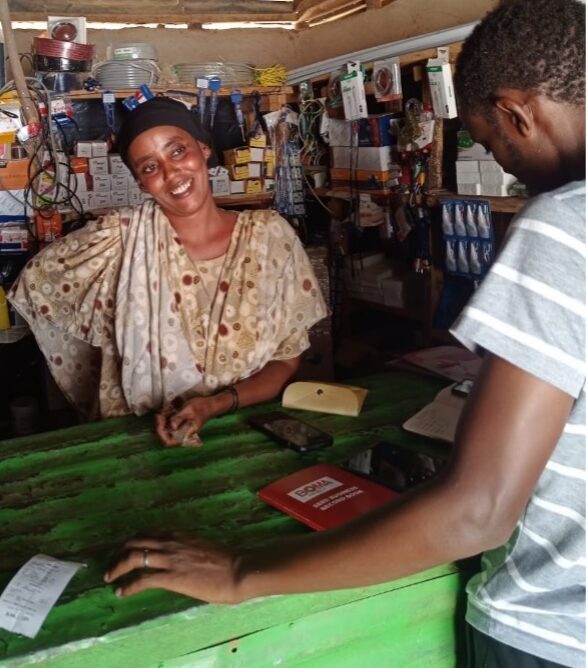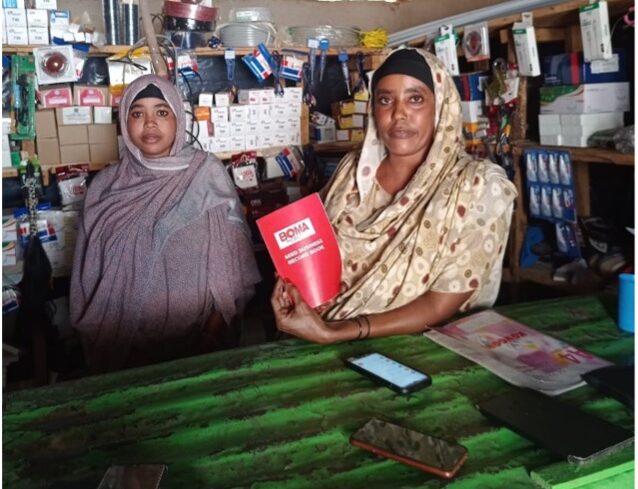Breaking Barriers to Prosperity
Youth Participants Launch a Women-Run Electronics Shop

Young men and women like Kabale Hawo Godana, who goes by Hawo, are facing an unemployment crisis. In Kenya, youth account for 60 percent of the unemployed. Each year, 10 to 12 million young men and women join the workforce to compete for just 3.1 million jobs. The demand for work often exceeds the supply of available jobs — but this is only half of the story.
Kenyan youth are also facing threats and attempts at radicalization from extremist groups including Al Shabab and ISIS. In Isiolo alone, more than 200 people have been recruited by terrorist organizations. Most join for financial reasons. According to a 2023 United Nations Development Programme report, hope for finding work is now a main driver of recruitment to extremist groups.
Young women like Hawo, who lives in a town called Merti within Isiolo county, are especially more constrained than men in the face of unemployment and radicalization. Safety concerns prevent them from entering the job market at all, or limit job options if they do. Extremists often target young women and girls for kidnapping and attacks and, in some cases, young women are radicalized through the male members in their family.
On top of this, regions like Merti are also facing increased drought and flooding as a result of climate change with severe impacts on livestock and other livelihoods. In Isiolo, the barriers to prosperity are numerous and severe.
Young people like Hawo, however, have broken through these barriers to develop prosperity with dignity. Though she too once felt constrained by circumstance, Hawo has taken full advantage of the opportunity to enroll in BOMA’s program and become an entrepreneur. In fact, Hawo and her business partners have utilized the skills and knowledge learned through BOMA’s youth-adapted REAP model to launch the only electronics shop in Merti — and it is run solely by women.
While both men and women are enrolled in BOMA’s SEED program, all participants are encouraged to break down gender stereotypes and barriers. Hawo and her team are doing just that by providing a vital service in their community, and customers have flocked to the kiosk. As she prepares to graduate from BOMA’s SEED program, Hawo’s electronics shop is now bringing in up to 6,000 KES in a day. As her business grows, Hawo is committed to providing employment opportunities for other young people in her community — especially young women facing the same barriers she has broken through.
“We started our shop after receiving a grant of 30,000 KES from BOMA,” Hawo explained. “From the beginning, we were taught everything we need to know. While starting a business on a budget is challenging, it’s not impossible. With careful planning, creativity, and hard work we have been able to grow what we’ve been given.”
“We started our shop after receiving a grant of 30,000 KES from BOMA,” Hawo explained. “From the beginning, we were taught everything we need to know. While starting a business on a budget is challenging, it’s not impossible. With careful planning, creativity, and hard work we have been able to grow what we’ve been given.”
Beyond building opportunities for her community, Hawo says that she hopes the tech-savvy women working at her electronics shop can serve as role models for young girls in Merti. She wants them to see that, though the challenges ahead of them are real, they are not unbeatable. Even in a traditionally male-dominated pursuit, they can find success if given the chance. Hawo exemplifies the SEED program’s goal to expand economic opportunities for Kenyan youth in ways that develop their leadership capabilities and encourage them to exercise agency, especially for young women living in a patriarchal society.

